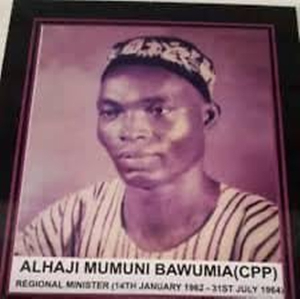Not everyone reads, but almost everyone listens to music. And that is largely how the revolutionary funk band, the Lumpen, helped galvanize the masses towards the Black Panther Party’s cause and vision of social change at a time when music offered hope and strength to African Americans and leading activists in their quest for justice and equality.
With original members being Bill Calhoun, Clark (Santa Rita) Bailey, Michael Torrance, and James Mott, who was said to be the leader, the Lumpen performed at clubs, rallies, community centers, and colleges in the San Francisco/Oakland Bay Area, sometimes in the face of violence. Soon, it developed a following for its impermeable funk and thrilling performances, complete with costumes and dance routines.
Indeed, the Lumpen even got a major record deal, but it knew its purpose so rejected it. Its purpose, according to one of the members, Torrance, was “to educate the People…to use popular forms of music that the community could relate to and politicize it so it would function as another weapon in the struggle for liberation.”
Essentially, for the funk band, the Black Panther party always came first. Fellow student Bobby Seale formed the Black Panther Party, originally the Black Panther Party for Self Defense, in 1966 to fight police brutality against the Black community in Oakland. The party took on a militant stance coupled with the burgeoning pride associated with the Black power movement.
The Panther Party became infamous for brandishing guns, challenging the authority of police officers, and embracing violence as a necessary by-product of revolution. The Panthers were not just about being menacing, however, as the group introduced a series of goals such as fighting for better housing, jobs and education for African Americans. Nevertheless, the group’s militancy made it a target of law enforcement officials and many of its members would be imprisoned and killed in gun battles with the police.
Mott — who would become the leader of the Lumpen — joined the Panthers as a teenager in the 1970s, with his main aim then being helping community members in West Oakland get access to the Party newsletter. He helped distribute these newsletters from the party’s Central Headquarters in West Oakland and sometimes sang while doing so. Emory Douglas, the Panthers’ Minister of Culture soon noticed Mott has got a nice voice. So he asked Mott if he would like to join with some other party members whose voices were equally good to form a band that will combine “R&B with social commentary” that will reach the masses.
Not too long after, the Lumpen was born. It started rehearsing at the Panther HQ in West Oakland where members collaborated on the lyrics, songs, concepts and choreography, Mott told KQED in an interview. The group would become known for songs “No More” and “Free Bobby Now”, at a time party leader Bobby Seale was being tried for murder, kidnapping, and conspiracy. The charges were later dropped.
Between 1970 and 1972, the Lumpen performed to audiences during tours of colleges and fundraisers in St. Paul/Minneapolis, New York City, Boston, other areas, giving many the chance to also call themselves revolutionaries. As band member Torrance wrote: “We promoted the Party’s mass line through re-working popular songs by the Impressions (People Get Ready – Revolution’s Come), the Temptations (There’s Bullets in the air for Freedom, Old Pig Nixon) as well as originals such as Revolution is the Only Solution, We Can’t Wait Another Day, Set Sister Erika Free, and Killin’ (If U Gon Be Free).
But due to their “controversial” lyrics, radio stations denied them airplay. By 1972, the group disbanded as members were given other roles in the party. “It is important to stress that the Lumpen were Panthers first and foremost,” Torrance wrote. “Before, during and after the group, we did all the political and day-to-day work that was required of every rank and file comrade. The music was simply another facet of service to the Party and the Revolution.”
Certainly, the Lumpen did not last long enough but its legacy was felt in social/political protest songs by R&B and funk artistes throughout the 1970s.
Africa News of Thursday, 4 February 2021
Source: face2faceafrica.com













